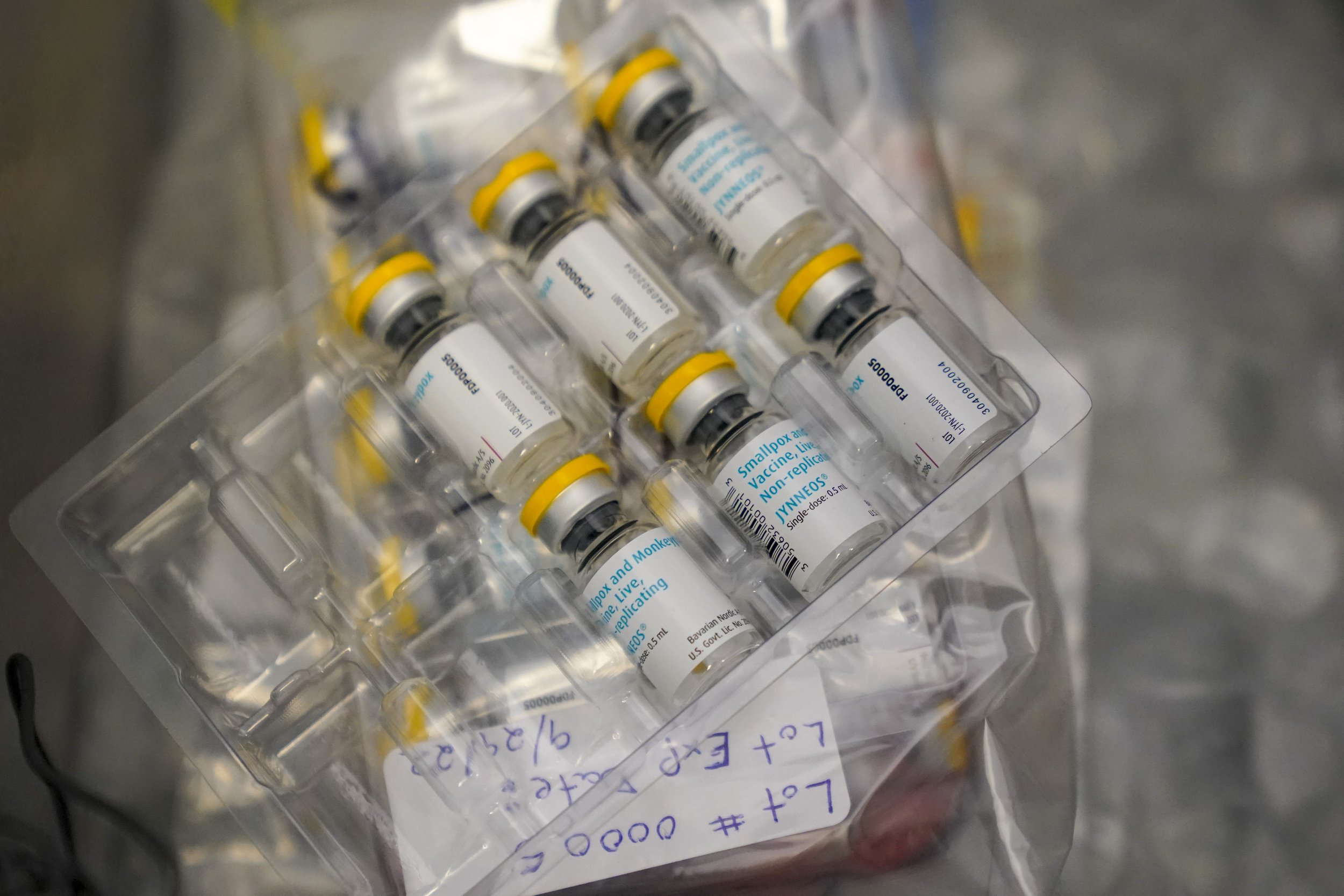Public defenders look for answers about monkeypox on Rikers
/The Legal Aid Society is asking the city’s health department to address their concerns about monkeypox on Rikers Island and throughout the city’s jails. AP file photo by Mary Altaffer
By Jacob Kaye
Though there has yet to be a case detected in the city’s jails, the Legal Aid Society is calling on the city to be more transparent with its plans for vaccinating and treating its incarcerated population for monkeypox.
In a letter to Dr. Ashwin Vasan, the commissioner of the city’s Department of Health and Mental Hygiene, and to Dr. K. Torian Easterling, the chief equity officer at the health department, the public defense group said they were “deeply concerned about NYC DOHMH’s lack of transparency about actions it has taken to provide [monkeypox] vaccines to people incarcerated in the New York City jails.”
The attorneys said that conditions in the jails – including close quarters, non-air conditioned and crowded living spaces, lack of laundry services and the Department of Correction’s recent failures to produce incarcerated people to medical appointments – leave the population detained there vulnerable.
Requests for answers about how the agency plans to provide monkeypox treatment to the city’s incarcerated population – which currently exceeds 5,000 people – have gone ignored for the past month, according to the Legal Aid Society.
“We have been asking to meet with you since August 2 to learn what, if anything, NYC DOHMH is doing to protect incarcerated New Yorkers through vaccine availability and community education about orthopox protection,” read the letter, shared exclusively with the Eagle. “We have been thoroughly disappointed by the lack of any information in response to repeated inquiries.”
In its letter, the Legal Aid Society asks how many vaccine doses the health department has provided for pre- and post-exposure vaccination and what community education the health department has given to incarcerated New Yorkers about the disease.
The city’s health department did not respond to the Eagle’s request for comment.
Health services in the city’s jails, including on Rikers Island, are provided by Correctional Health Services, a division of New York City’s Health + Hospitals.
Currently, the health services provider conducts monkeypox patient screening during an incarcerated person’s intake process, according to a CHS spokesperson.
Those who are suspected to have monkeypox are placed in medical isolation, tested and observed, the spokesperson said. A case has yet to be detected, according to CHS, but should one be confirmed, the infected person would remain in medical isolation until they’ve recovered and are no longer contagious.
CHS has tests available in the city’s jail and the spokesperson said it has access to the vaccine through the city’s health department.
A spokesperson with the Department of Correction told the Eagle that the agency is following monkeypox guidelines outlined by the Centers for Disease Control, and state and local health departments.
Should a staff member come into contact with an infected individual, they’ll be required to wear personal protective equipment and follow the recommended safety precautions, the spokesperson said.
The DOC had issues vaccinating its incarcerated population against COVID-19. Cases spread rapidly inside Rikers Island during the early days of the pandemic and during the various later waves of the pandemic.
During the Omicron spike in December of last year, only around 38 percent of detainees were vaccinated – nearly half the vaccination rate of New York City’s population at the time. The virus became so prevalent that then-DOC Commissioner Vincent Schiraldi wrote an open letter to attorneys, district attorneys and judges urging that they do all in their power to prevent sending people to the city’s jails, and said the infection rate was at “crisis level.”
In addition, a correctional officer staffing shortage that began last summer and has mostly persisted through 2022 has resulted in a number of missed medical appointments for detainees – incarcerated people are required to be taken to appointments by an officer escort, should one be available.
A Bronx judge recently ruled that the DOC had failed in its mandate to provide medical services to incarcerated people, and ordered the agency to do so. It was found in contempt of that order earlier this summer.
Monkeypox cases in New York are beginning to decline.
This month, the city’s health department detected around 50 new cases per day on average in mid-August. The agency was detecting around 70 new cases per day in July, according to city data.
Around 2,885 monkeypox cases have been reported throughout the five boroughs since the first case in New York City was identified in May.




